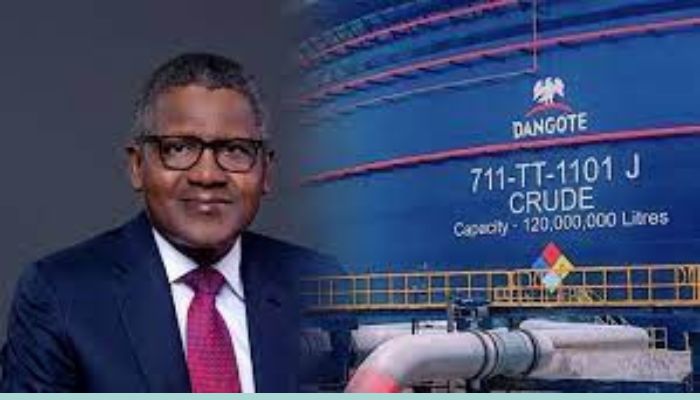
Aliko Dangote, Africa’s wealthiest industrialist, is reshaping the continent’s energy narrative once again—this time by seizing control of the entire refined oil supply chain in Nigeria.
Following the successful commissioning of his colossal refinery, the largest in Africa, Dangote is now bypassing traditional fuel distributors to deliver petrol and diesel directly to end users.
Starting August 15, the Dangote Group will begin supplying refined fuel directly to key players in the Nigerian economy, including transport firms, industrial operations, service providers, and gas station networks.
This bold move aims to eliminate costly intermediaries, lower prices for strategic customers, and streamline delivery timelines in a country where fuel logistics have long been mired in inefficiency.
“This initiative breaks with a system long criticized for its slowness, unreliability, and the margins imposed at each level,” observers noted.
By integrating downstream distribution into his operations, Dangote is not just refining crude—he’s refining the way energy is accessed and consumed across Nigeria.
To support this strategy, the group is launching an expansive logistics network, deploying a fleet of state-of-the-art trucks powered by cleaner fuels.
New refueling hubs will be established across major business zones, and a credit-based purchasing scheme will be offered to large-scale clients, helping them manage cash flow while securing uninterrupted fuel access.
Dangote’s end-to-end energy strategy signals more than corporate growth—it marks a decisive step toward African industrial sovereignty.
“He is charting a course that others can follow,” one analyst remarked, pointing to the broader implications for nations grappling with reliance on imported fuel and fragmented distribution networks.
The refinery, already hailed for reversing Nigeria’s dependence on imported petroleum products, now anchors a fully localized supply chain that meets domestic demand while setting a model for the continent.
If successful, the Dangote model could inspire replication across Africa, creating a new standard in energy independence—rooted in local investment, regional integration, and self-sustaining industrial infrastructure.



